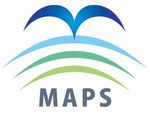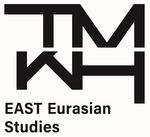NIHU Research Projects
As basic and interdisciplinary research on the humanities, which forms the core of NIHU, eleven research projects in three types will be implemented, leading to an expansion of academic networks and the creation of new fields to strengthen functions for fulfilling our mission as an inter-university research institute.
Institute-based Projects
NIHU’s six institutes have established priority research themes in accordance with their respective missions. They collaborate with institutes and researchers both in Japan and overseas to research that deepens knowledge and understanding of their respective specialist areas.
Multidisciplinary Collaborative Projects
These are projects in which NIHU’s institutes take on a central role while collaborating with other NIHU’s institutes as well as universities and other external institutes, working with research themes that cut across different fields. There is a collaboration with Japanese and overseas research institutes and researchers in diverse fields such as the humanities, information science, conservation science, and environmental studies, as well as with local communities, to engage in interdisciplinary research that transcends the boundaries of specializations.
Interdisciplinary and Integrated Studies on Local Cultures: Aiming for the Emergence of Novel Communities
Many local communities today are in a critical situation due to frequent disasters and changes within and outside the community. While inheriting existing traditional culture, there is a need for social emergence through new bearers and the culture that is renewed there. In this research, the aim is to actively participate in social and cultural emergence by investigating how a society can be truly sustainable and diverse from cross-cutting perspectives such as conservation science, anthropology, folklore, history, ecology, and linguistics, incorporating traditional culture that is replete with local wisdom and history.
Project Website [Japanese only]
- REKIHAKU
[lead institute] - Reintegration of Field Science and the Emergence of Regional Culture
[Japanese only] - MINPAKU
[lead institute] - Building a Model for Effective Utilization of Local Culture
[Japanese only] - NIJL
- Reconstructing Archives and Historical Culture in Depopulated Areas
- NINJAL
- Rediscovery of Citizen Science Culture in the Regions and Today
- RIHN
- Regional Culture Studies to Avoid Disasters by Utilizing the Bounties of Nature
[Japanese only]
Object-based Research of Nature-human Interactions up to the Anthropocene
Humanity living in nature have made use of a wide variety of resources from the environment. The goal of this project is to study the relationship between nature and people along temporal and spatial axes by analyzing the concentrations and isotope ratios of elements contained in the human body and substances, and to clarify the changes in human resource usage that lead to modern global environmental problems from the perspective of material culture. In addition to conducting collaborative research with the National Museum of Ethnology on the ancient Andes, the academic collaboration will be done also with universities and research institutes inside and outside NIHU.
Project Website [Japanese only]
- RIHN
[lead institute] - Object-based Research of Nature-human Interactions up to the Anthropocene [Japanese only]
- REKIHAKU
- Chronological, Paleoclimatic and Exchange Researches Based on Isotopes
Expansion Studies of Synthetic Bibliology
The main target is the Edo period and earlier books, and each unit has a common flow of "fragmentation of information into units of lexical level and character composition"→ “reconstruction as value-added data,” with the aim of contributing to society today and graduate school classes through the research results, and at the same time innovate at the meta-level of expanding research methods and areas themselves while incorporating AI technology as appropriate. By allowing open access also to failed attempts, this becomes a kind of testing ground for knowledge in the humanities, which invites future breakthroughs.
- NIJL
[lead institute] - Information Engineering Analysis of Composition and Surface Patterns of Old Type Plates
- REKIHAKU
- Generalization of Engi Shiki through Digital Technology
- NINJAL
- Expansion of Vocabulary Resources Based on Old Dictionaries and Historical Transition of Vocabulary and Notation
Network-based Projects
These are projects in which NIHU’s institutes play a central role in forming a network with universities and other research institutes in Japan and overseas as well as implementing issues that are important to Japan and the world. Through the establishment of the NIHU Global Area Studies Program and the Inter-University Research Institute Network Project to Preserve and Succeed Historical and Cultural Resources, efforts are being made in research to solve problems from various research field.

Global Area Studies Program(Steering Unit, MINPAKU)
So far, area studies have mainly focused on elucidation of the unique, essential, and inherent nature of conventionally constructed areas, imagined (created) through a postcolonial knowledge system. In this research program, with collaboration of the following four projects consisting of networks of various research institutes and universities, we are aiming to uncover the mechanisms of the establishment (and failure) and transformation of the global order from a viewpoint of comparison and relevance of various areas, and to explore possibility of new area studies that go beyond the conventional conceptualization of areas.
Project Website [Japanese only]

Global Mediterranean
This project examines the movement of people, goods, and knowledge through the modern and contemporary Mediterranean from a supra-regional and interdisciplinary perspective, exploring frameworks in area studies.
- MINPAKU
(Central Hub) - Modern Migration and Reconstructing the Area Concept
- Toyo University
- Historical Changes in Images/Representations [Japanese only]
- Tokyo University of
Foreign Studies - Inter-Civilizational Circulation of Literature and Performing Arts
- Doshisha University
- Multiculturalism and Coexistence in Contemporary Society

Indian Ocean World Studies
Focusing on the world surrounding the Indian Ocean, this project will elucidate the dynamics by which flows of people, goods, information, values, and so on have been involved in the generation, development, accumulation, and disappearance of relationships inside and outside that world.
- MINPAKU
(Central Hub) - Linkage and Continuity of Movements
- University of Tokyo
- Development, Medicine, and the Environment
- Osaka University
- Hybridity and Creativity of Literature and Ideas
- Kyoto University
- Peaceful Coexistence[Japanese only]

Maritime Asian and Pacific Studies (MAPS)
Based on the fundamental cultural commonalities within the “Austronesian” language sphere, this project aims to comprehensively outline cross-border movements of people, goods, and information from maritime Asia to Oceania.
- MINPAKU
(Central Hub) - Resource and Infrastructure Development, Livelihoods, Cultural Heritage, and Cultural Reconstruction
- Kyoto University
- Food and Health, Physical, Physiological, and Cultural Evolution, Climate and Social Change
- Toyo University
- The Logic of Seaside Habitation, Natural Disasters, Resilience, Commonality and Regionality
- Tokyo Metropolitan
University - Mobility of People and Goods, Economic Capital and Mobility, Materiality and Landscape Changes

East Eurasian Studies
This project aims to elucidate the influence of the existence of East Eurasia, home to the large states of China and Russia, on the global world from the perspective of cultural collisions and well-being (sense of happiness).
Project Website [Japanese only]
- Tohoku University
(Central Hub) - Minority Rights and the Media [Japanese only]
- MINPAKU
- Religion and Subcultures [Japanese only]
- Kobe University
- Declining Birthrate, Aging Population, and Conflict
- Hokkaido University
- Border Crossings and Gender

Inter-University Research Institute Network Project to Preserve and Succeed Historical and Cultural Resources
This project will contribute to the construction of local history and culture by having the foundations of historical and cultural materials in the area recognized by not only researchers but also the area as a whole, based on the results of activities to preserve historical and cultural materials conducted in the area (preservation, survey, and research activities), building on the “Shiryo Net” established in universities and areas across Japan, centering on NIHU (lead institute: REKIHAKU), Tohoku University, and Kobe University. Moreover, it aims to help researchers and areas share the best ways to preserve materials and the foundations of local culture through collaboration and co-creation between local governments and society.
Project Website [Japanese only]
- REKIHAKU
[lead institute]
→ Website
[Japanese only] - - Promotion of research on area-centered preservation of materials
- Construction of a research platform to find physical things as materials
- Building diverse networks for material preservation and inheritance - Tohoku University
→ Website
[Japanese only] - - Interdisciplinary research in the humanities and the natural sciences to understand local communities after the Great East Japan Earthquake
- Promotion of area studies and citizen science through citizen participation - Kobe University
- - Development of methodologies for collaboration and co-creation with local communities
- Research on the preservation and utilization of contemporary materials, including earthquake disaster materials






